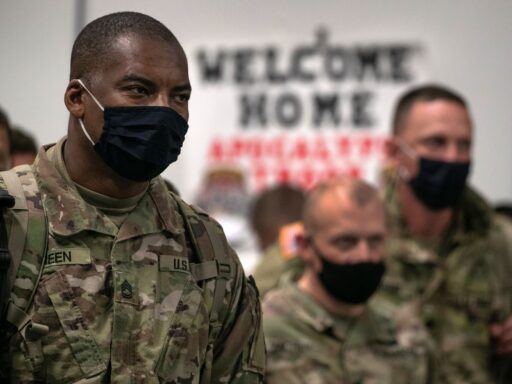Rep. Jason Crow (D-CO), a member of the House Armed Services Committee and a former Army Ranger, wants to help the Pentagon better understand issues of diversity.
President Donald Trump has tried to eradicate some diversity training programs in the federal government, including at the Pentagon.
But now a former Army Ranger and Democratic member of Congress is fighting back.
On Thursday, Rep. Jason Crow (D-CO), who sits on the House Armed Services Committee and is a veteran of the Iraq War, plans to introduce new legislation that would mandate a more rigorous diversity training program for troops, civilian staff, and contractors at the Defense Department. A draft bill was shared with me before the final version’s release.
While service members already go through diversity training as mandated by law, the Realizing Efforts for Military Equity, Diversity, and Inclusion (REMEDI) Act would update current language to ensure programs include issues like racism, general and sexual orientation discrimination, unconscious bias, and equal opportunity. The measure would also expand the number of people who receive such training and where they get it, like during their professional military education stints.
The aim isn’t just to create a greater understanding of diversity issues in America’s armed forces, of which 43 percent are people of color, for example. It’s to inculcate their importance throughout the entire military.
“We’re not doing nearly enough to say diversity and inclusion are an important part of our force,” Crow told me. “It’s as important as how to throw a hand grenade, how to shoot a rifle, and how to make a bed. Actually, it’s much more important than those things.”
The decision to introduce the measure was taken partly in response to the executive order Trump signed in September to ban critical race theory training within federal departments, which this bill would counteract. Pentagon staffers told me it didn’t really affect their diversity programming, but some did worry issues of racism might drop out of the agenda. It also comes after an investigation at Fort Hood, prompted by the murder of 20-year-old soldier Vanessa Guillén, highlighted many longstanding issues in the military.
But not everyone is sold on the need for Crow’s bill. Three current and former troops — which included two men and two people of color — told me they already receive decent diversity training, and what they go through is easy enough to click through without absorbing the information. Crow’s legislation doesn’t address that, they claimed. “What’s being proposed won’t really change anything,” a service member told me, speaking on the condition of anonymity to talk freely.
And Shannon Minter, the legal director of the National Center for Lesbian Rights, told me he believes President-elect Biden will repeal Trump’s executive order on his own, rendering Crow’s measure somewhat moot.
But the Colorado representative told me his personal experience in the military makes it clear why diversity — and, by extension, his bill — matters.
“One of the strengths of our military is its diversity”
During the invasion of Iraq, Crow led a platoon in a section of southern Baghdad. As a 24-year-old infantry officer, he took on a role that mixed the duties of mayor, city council member, and police chief, adjudicating issues such as oil and property rights.
Without a diverse team around him — people of different races, faiths, and other backgrounds — Crow says he wouldn’t have been able to do his job. Those in his platoon “were essential to getting things done [by] looking at things from multiple angles,” he told me.
That experience spoke to the essence of what America’s armed forces are for him. “One of the strengths of our military is its diversity,” he said. “We were a better team because of it. … The military is supposed to be our standard-bearer for our country and our values.”
It’s unclear if Crow’s bill, which he’s co-sponsoring with Rep. Lori Trahan (D-MA), would make it through Congress. If it fails as a stand-alone measure, the plan is to put the provision into the annual multibillion-dollar defense policy bill next year, though its success as part of that effort is far from certain.
There’s also a chance the bill becomes a political liability for the lawmaker. He’s the first Democrat to represent his district in suburban Denver, a highly diverse military community, since it was created in 1982. A bill that Republicans might see as leaning into “identity politics” could hurt his reelection efforts.
Crow doesn’t buy that. “It’s not an identity politics bill,” he said. “It’s a training and readiness bill. It’s a national security bill.” He continued: “When I decide to do something, I’m all in, and the people of my community know where I stand.”
Whether his constituents, other lawmakers, and the military itself stand with him will be the question once his bill comes out.
Author: Alex Ward
Read More



